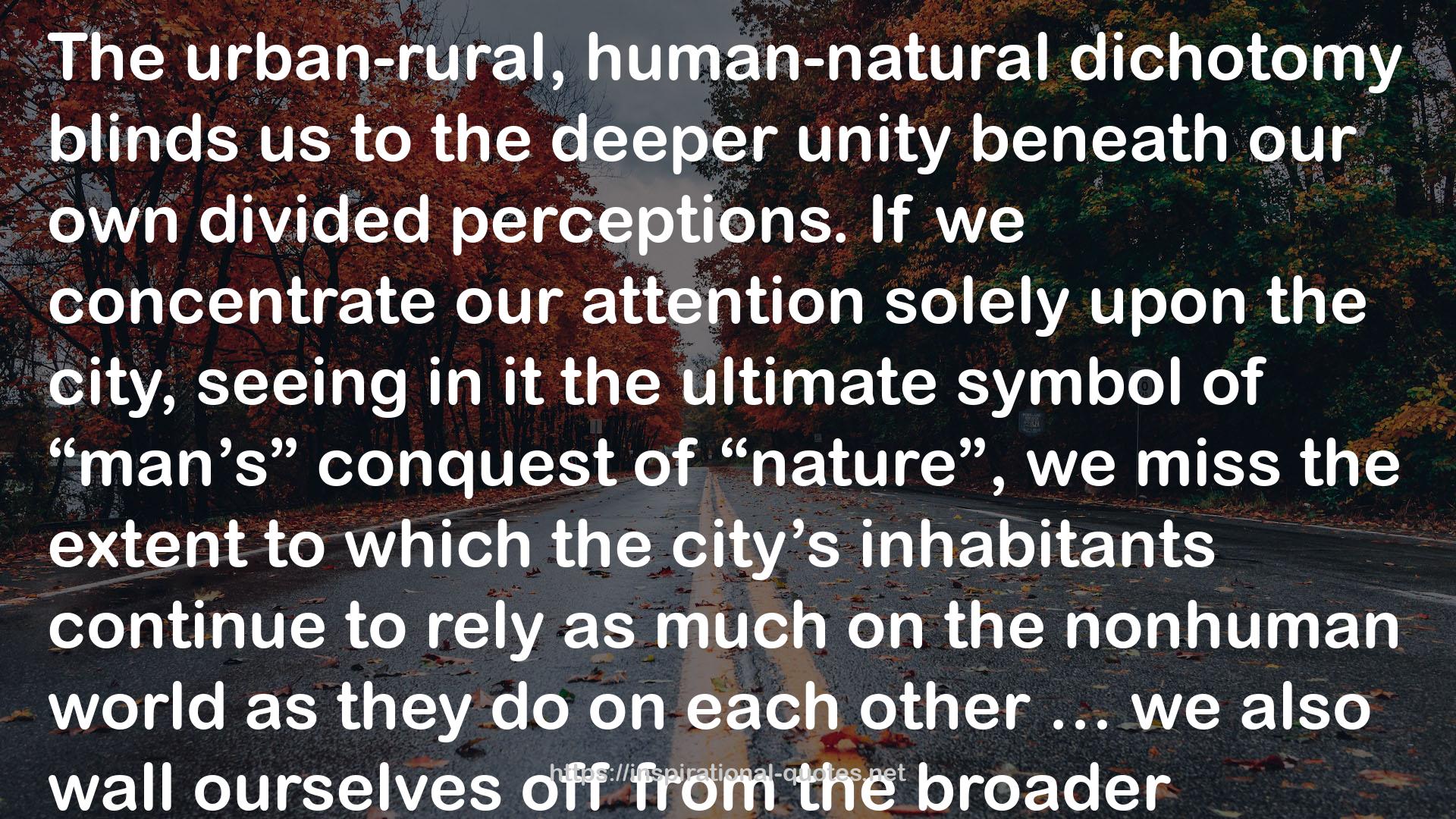" The urban-rural, human-natural dichotomy blinds us to the deeper unity beneath our own divided perceptions. If we concentrate our attention solely upon the city, seeing in it the ultimate symbol of “man’s” conquest of “nature”, we miss the extent to which the city’s inhabitants continue to rely as much on the nonhuman world as they do on each other … we also wall ourselves off from the broader ecosystems which contain our urban homes. Deep ecology to the contrary, we cannot solve this dilemma by seeking permanent escape from the city in a “wild” nature untouched by human hands, for such an escape requires us to build the same artificial mental wall between nature and un-nature. We fail to see that our own flight from “the city” creates “the wild” as its symbolic opposite and pulls that seemingly most nature of places into our own cultural orbit. We alter it with our presence, and even with the ways we think about it. Just as our own lives continue to be embedded in a web of ‘natural’ relationships, nothing in nature remains untouched by the web of ‘human’ relationships that constitute our common history. "
― William Cronon , Nature's Metropolis: Chicago and the Great West
